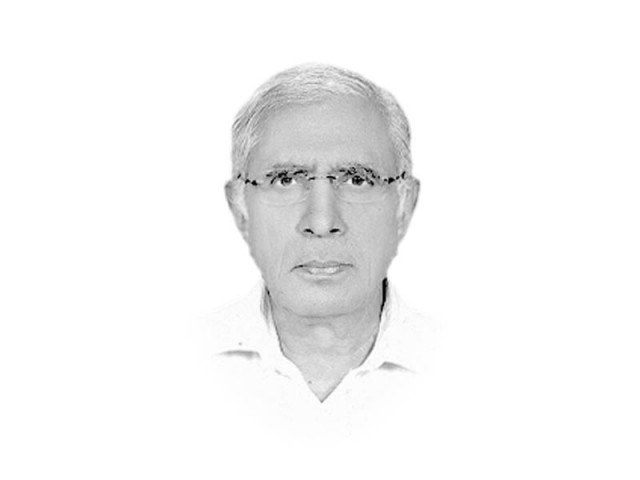Vote counting made easy
The electoral reforms committee could recommend ECP to start experimenting with the EVMs in forthcoming by-elections

The writer served as Executive Editor of The Express Tribune from 2009 to 2014
The entire electoral history of Pakistan is marred by malpractices and electoral frauds. Whether conducted by generals or by civilians, all general elections held since 1970 appear to have been engineered. The tenth one held in May 2013 was no exception. The 1985 non-party election held during General Ziaul Haq’s martial law regime was clearly a selection, not an election. In the 1988 elections, the establishment used all the tricks in its bag to keep the PPP from returning to power but failed. In the 1990 elections, the establishment distributed as much as Rs140 million among their favourites and put together a conglomerate of right-of-centre parties called the Islami Jamhoori Ittehad to successfully keep the PPP from returning to power for the third time.
But in the 1993 elections, the same establishment, now hostile to a ‘rebellious’ Nawaz Sharif, helped the PPP return to Islamabad. Sensing that the MQM would once again sweep the polls in urban Sindh, denying the PPP enough seats to form a government in Islamabad, it used the MQM (which it had only a year before pushed to the wall) to achieve its objective. The MQM boycotted the National Assembly elections hoping perhaps to get back into the good books of those who had requested the cooperation of the Haqparasts. And in the 1997 elections, the polls were manipulated to reduce the PPP’s presence in the National Assembly to no more than 18 members. In the 2002 elections again, the establishment was active but still it could not deny the PPP a majority. So, Musharraf produced 22 ‘patriots’ from out of the PPP majority.
It was because of the utter failure of the Election Commission of Pakistan (ECP) to assert its authority and use its constitutional powers without fear or favour that the establishment was able to so blatantly manipulate the elections in any manner that it had desired. So, the first reform that is needed, and urgently so, is to enable the ECP to use its powers effectively enough to decisively ward off the elements that would try to interfere with its job. Next, the committee could also see if instead of retired judges, the job could be done better by retired civil servants. The job of a judge is not to prevent a crime. This is done best by capable and honest civil servants of good public repute.
In India, elections are conducted by retired civil servants, known to be honest and strong administrators. And they seem to have done a fairly good job consistently. Also, since 1998, the Indians have been using what is called the electronic voting machine which is based on the low-tech calculator technology. These machines, which would cost no more than Rs20,000 each, eliminate the need for ballot papers, saving millions of reams of paper and printing costs, and reduce the vote-counting time to zero, making it non-questionable, thereby saving the hassle of recounting. They also record the voter’s signal correctly, eliminating the problem of rejecting a vote because the voter’s mark was placed in the wrong place or was unreadable.
The committee could recommend the ECP to start experimenting with the electronic voting machine in forthcoming by-elections and introduce it at the 70,000 or so polling stations countrywide by the 2018 general elections.
Published in The Express Tribune, April 22nd, 2015.
Like Opinion & Editorial on Facebook, follow @ETOpEd on Twitter to receive all updates on all our daily pieces.














COMMENTS
Comments are moderated and generally will be posted if they are on-topic and not abusive.
For more information, please see our Comments FAQ